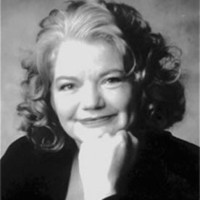YOUNGSTOWN, OHIO — "Youngstown," people here will tell you genially, "is always on the list of the 10 Most Politically Corrupt Places in America."
Well, we all have to brag about something. (Personally, I sorta hitch up my jeans and allow, "Yup, it is a little warm down home just now.")
When the inquiring reporter sets out to find out why Youngstown resembles Dashiell Hammett's "Red Harvest" in the blooming middle of 1998, there are many assorted answers:
"Stupid voters."
"Don't ask me — I'm from Warren."
And mostly, "The mob." "The Mafia."
What mob?
"Well, we're between Chicago and New York." (Or the more geographically precise, "We're between Pittsburgh and Cleveland.")
Does anyone know who these people are?
"Oh, yes! Everybody."
And they do — who the black hats are, where they live, how the roads around their houses get special treatment, etc., etc.
It starts, as these things always do, with history. Youngstown and the Mahoning Valley were, like Pittsburgh, built on steel. If you've ever read any of the proletarian novels that were once popular, you pretty much know the story. Laborers were brought in from Eastern Europe and Italy to work in some of the most literally hellish conditions ever produced by the Industrial Revolution — up before dawn, back-breaking work in man-killing heat next to open blast furnaces, 14 or 15 hours a day. And when they got out, they wanted three things: booze, women and gambling (a form of hope). And these were provided.
According to Cal Routh, a longtime labor sympathizer, there used to be two bars by the main mill gates in Youngstown — one called First Chance and one called Last Chance. You hit one on your way in and the other on your way out. Meanwhile, the local genteel WASP aristocracy that predated the mills continued to officially run the town, while pretending that none of this unseemliness was occurring on their doorsteps.
It was a lusty, brawling, wide-open place — a shot-and-a-beer town, and no place for sissies or goo-goos (oldspeak for good government reformers).
As you can imagine, the United Steelworkers had some royal battles here. But in the end, they unionized the mills (we got some great labor songs out of those struggles) and the town wound up Democratic to the bone — so Democratic that Republican candidates for statewide office rarely even bother to visit.
But corruption often comes with a long spell of one-party rule, and corruption came to Youngstown with a vengeance. And then the town started dying. The steel industry moved overseas or went south. Youngstown got globalized before globalization was cool.
It feels like every dying town — Butte, Mont., after the copper mines closed, West Virginia after the coal mines. The only major employer left is General Motors' Lordstown plant, now shut by the strike, and if that goes, Youngstown is dead. Unlike Pittsburgh, which is now enjoying a renaissance, Youngstown never diversified its economy.
A great scholar of Youngstown, Mark Shutes of Youngstown State University's anthropology department, was not available, so I have only secondhand accounts of his work and must apologize for oversimplification. In addition to the history, Shutes believes, Youngstown suffers from a "Now I Want Mine" mentality. Of course, the mob influence is most often blamed on the Italian community, but there seems to be a rotating kleptocracy of all ethnic persuasions.
Now the feds have moved in after a months-long Justice Department inquiry and are indicting people left and right. One local radio station suggested a municipal indict-o-meter, sort of like the old United Way thermometers that got redder as they got closer to the annual goal. But no one here seems very impressed or excited by the mounting indictments. (A couple of local prosecutors were shot, although neither died.)
Jim Callen, a Legal Aid attorney, heads the Citizens League of Greater Youngstown, a goo-goo group. Callen, currently sidelined by a heart attack, believes there's no way to change Youngstown until the people understand its history — and he has been working with Shutes. An independently owned paper, the Vindicator, has done some fearless reporting on corruption, to no avail whatever.
The town's political hero is Rep. Jim Traficant, who being a local boy, was naturally indicted at one point in his life on accusations of taking bribes, but was acquitted to general satisfaction. (However, he was later nailed on federal tax charges related to the case.) Traficant was sheriff at the time. He represented himself and convinced the jury that he was actually conducting a sting operation against the bad guys.
C-SPAN viewers know Traficant as one of the few eloquent members of Congress and a devout opponent of the North American Free Trade Agreement, the General Agreement on Tariffs and Trade and other job-stealing advances in globalization. He's actually quite a wonderful demagogue, and his tirades against foreign aid, free trade, the Federal Reserve, the Internal Revenue Service and illegal immigration are a wonder to behold, or even behear.
But Traficant is not just a blusterer — he gets his "Made in America" amendment attached to many spending bills and is the father of the Taxpayer Bill of Rights, the cause now so vogue in Washington. And "The Almanac of American Politics" says, "He is one of the kindest and most thoughtful members to House employees and pages." A real working-class guy.
Wouldn't hurt to have a few more of those in Congress. See, some really interesting things can come out of Mahoning Valley politics.
Molly Ivins is a columnist for the Fort Worth Star-Telegram. To find out more about Molly Ivins and read features by other Creators Syndicate writers and cartoonists, visit the Creators Syndicate web page at www.creators.com.






View Comments